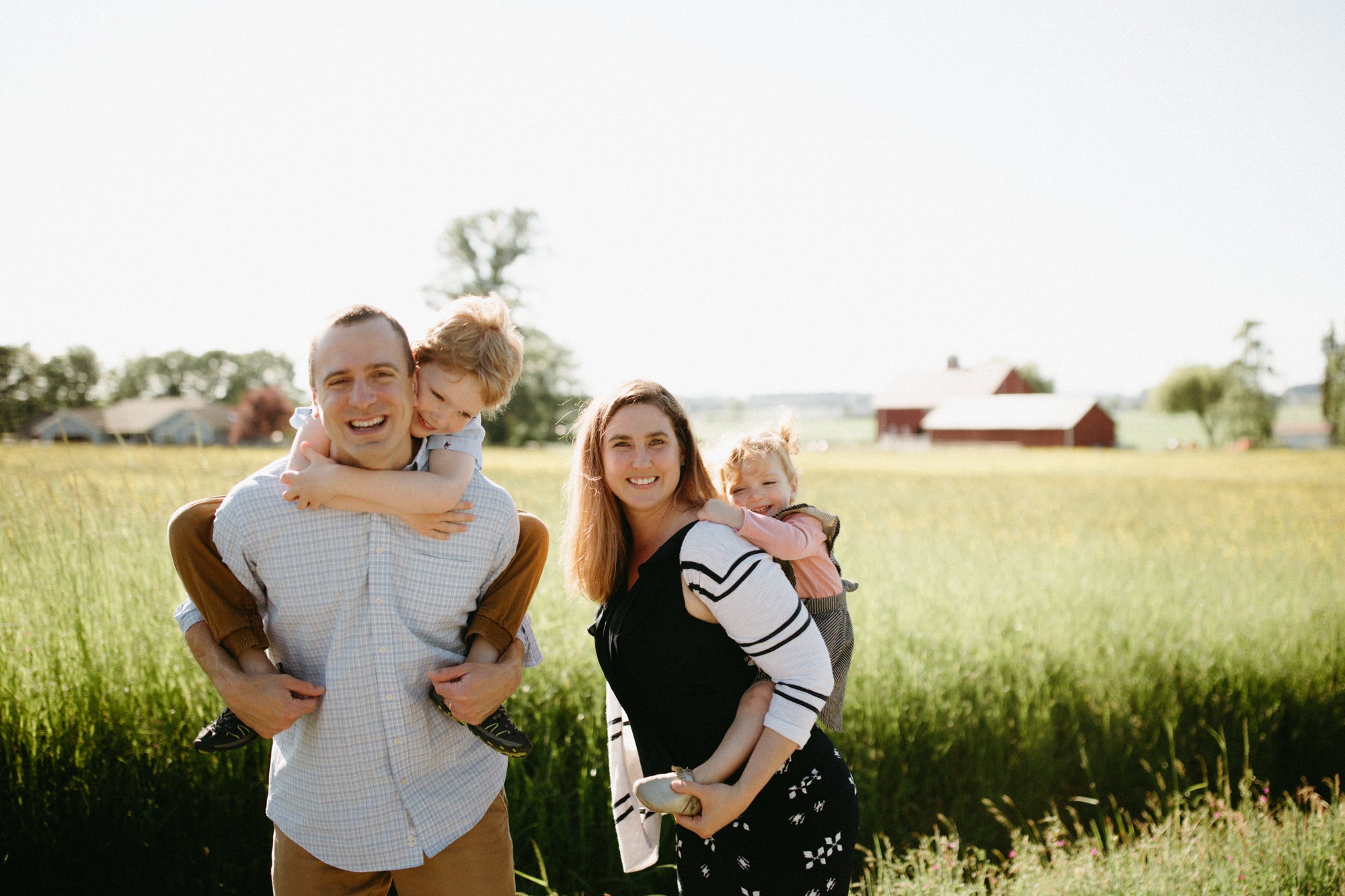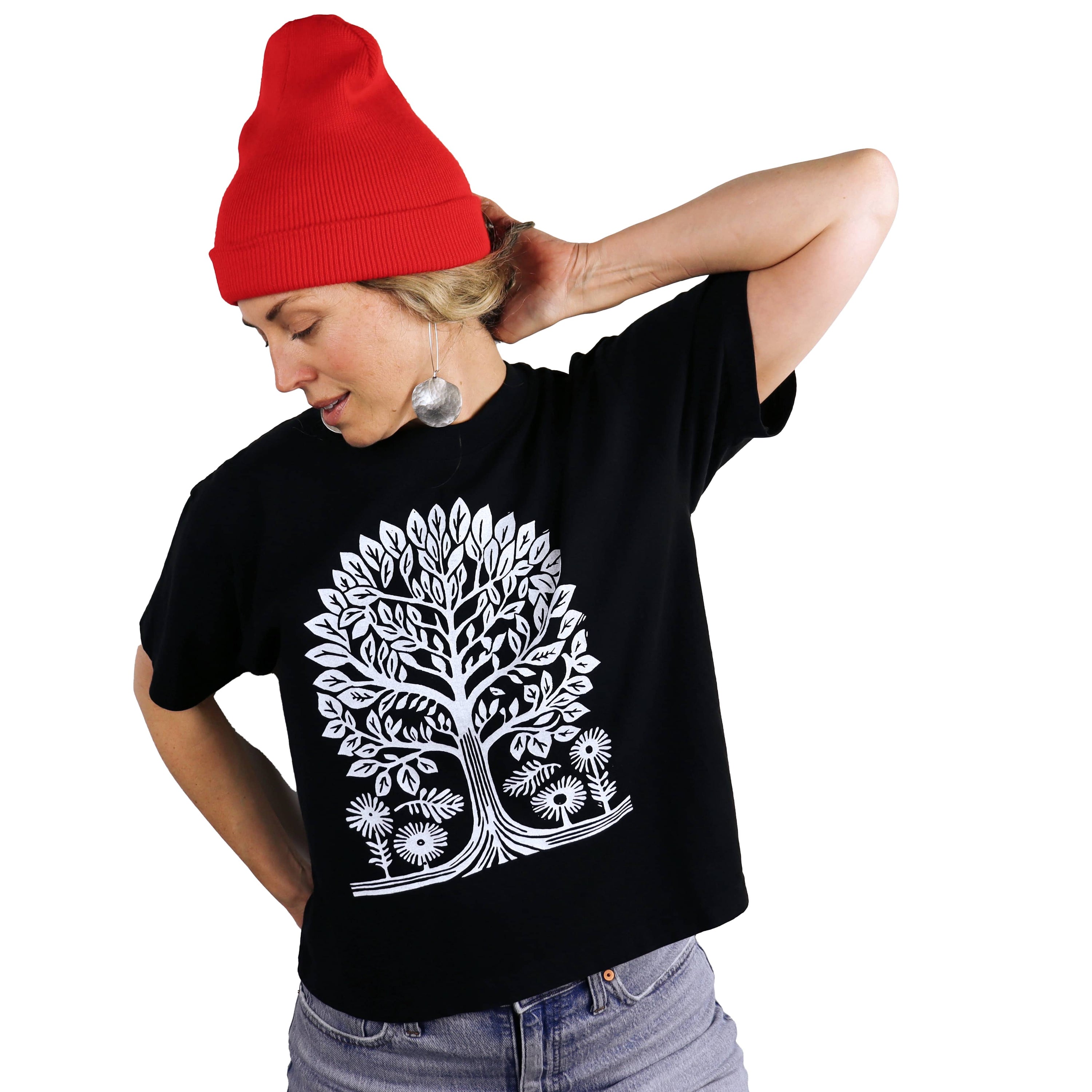

· By Phoebe Carpenter Eells
An Interview with Skagit County Superior Court Judge Candidate Elizabeth Yost Neidzwski
Local elections have a tremendous impact on social justice within communities. We are excited to see a candidate in the race for Superior Court Judge who has a breadth of experience and an eye on equity. We asked Elizabeth a few questions so we can all get to know her a little better.
(Leer in Español abajo)

Can you explain the position of the Superior Court Judge?
Superior Court handles a wide range of legal cases – criminal cases, family cases (divorce, child custody, adoption, dependency), civil cases (disputes over money and/or property), and mental health commitment cases, to name a few. The judge is responsible for maintaining control of the courtroom. The judge is also responsible for making decisions about the law and how it applies to the facts at hand. In some types of cases where there is no jury, the judge will resolve disputes over the facts. In criminal cases, the judge is responsible for sentencing a defendant after he or she is convicted of a crime.
What impact does this position have on Skagit cities, Skagit County, and the residents therein?
Judges make decisions that impact every aspect of our personal lives and determine the safety and security of our community.
For example, judges may decide which parent receives custody of their child in a custody dispute. A judge may decide whether or not a tenant should be evicted from their home and under what circumstances. A judge may also decide whether a criminal defendant should be sentenced to prison or sent to in-patient chemical dependency treatment and allowed to be supervised within the community. A judge may settle a contract dispute between a business and its customers, or even a property border dispute between two neighbors.
This decision-making authority gives local superior court judges enormous impact on our community safety and stability. If judges cannot be trusted to follow the law and to be fair and unbiased, then our community members will not have faith that they will be given justice in some of the most important issues in their lives.
How are you uniquely suited for this position?
My entire career has been dedicated to ensuring all people can be heard and treated fairly in court. In my daily work as a public defender, I get up close and personal with some of the most challenging situations in our community, including mental health crises, homelessness, addiction, and racial bias. I supervise our county’s juvenile defense office, working with the youth of our community to keep them in school and out of juvenile detention. While protecting and defending my clients and our Constitution, I work towards practical solutions to address the underlying issues that bring people through the courthouse doors in the first place.
As current vice-president of the board for the largest civil legal aid provider in Washington, I have stood as an ally for low-income people in legal cases affecting basic human needs such as family safety and security, housing preservation, protection of income, access to health care, and education. This pandemic has shown that as a community, we really are only as strong as our most vulnerable members. We need judges who understand this and will work to uphold the law for our entire community. Equal access to justice is what I have worked towards for my entire career, and it is what I will strive towards in every case as a judge.
What do you see as the biggest hurdle in the fight for social justice here in Skagit Valley? What are the top 2 ways that the community can help in this fight?
The biggest hurdle in the fight for social justice here in the Skagit Valley is the idea that we can’t change things. Sometimes, it is easy to get stuck in the mindset that we must do things in a certain way because that is the way that we have always done them. However, the law is constantly evolving as society evolves. Slavery used to be legal. Separate but equal was the law of the land. Women were not permitted to vote. But as we as a society evolve and learn and grow, our laws change with us. It is the court’s job to apply and uphold the law.
The first thing that everyone in our community can do to fight for social justice is to use your voice to speak out. If something is wrong, speak up. Pay attention to what is going on within your community and get involved. If we all say nothing and turn the other way, nothing will change.
The second thing that everyone in our community can do to fight for social justice is to vote. Local elections matter. Judicial elections matter. Our local politicians and judges have tremendous influence and power over our community, and the community has a tremendous opportunity to vote its values in every election.
You’re the youngest candidate and currently working in a public sector role. How does this define your perspective on the position of Superior Court Judge?
I may be the youngest candidate, but I am not short on experience. I am an experienced trial attorney with experience in both civil (business) and criminal law. I supervise my office’s juvenile, mental health, and parent’s representation units. I have sat with a man for an entire day on death row and stood by while he was executed. I have comforted a mother after telling her that her eighteen year old son was going to be deported. I have had a young client sentenced to a prison term longer than his days on the earth. I have watched my mentally ill clients physically and mentally deteriorate while being held in isolation in the jail, waiting for admission to the mental hospital for treatment. I have celebrated my clients’ sobriety, children, education and career successes. As a board member for Northwest Justice Project, our state’s largest civil legal aid provider, I have stood as an ally for our low-income community members in issues pertaining to housing and economic justice. I am a wife. I am a mother. I am a daughter and sister and friend.
My experiences, professional and personal, show me how hard it is for certain people to be heard and treated fairly in court. I am committed to breaking down barriers to accessing justice, and ensuring that all of us can trust that when we walk through the doors of our local courthouse, we will be treated with dignity and fairness. As a judge, I will be courageous, and follow and apply the law fairly and equitably, even when that is not the easy or popular path.

Mail in ballots will arrive in our mailboxes any day- fill them out, send them back, ask your people if they've voted. Now more than ever, every election is important.
UNA ENTREVISTA CON LA CANDIDATA PARA LA POSICIÓN DE JUEZ DE LA CORTE SUPERIOR DEL CONDADO DE SKAGIT, ELIZABETH YOST NEIDZWSKI
16 de julio, 2020
Las elecciones locales tienen un impacto tremendo en la justicia social en nuestras comunidades. Estamos emocionados de tener una candidata que se está postulando para juez de la corte superior quien tiene una amplia experiencia y su mirada puesta en la equidad. Le hicimos a Elizabeth unas preguntas para poder conocerla un poco mejor.
¿PUEDE EXPLICAR LA POSICIÓN DE LA JUEZ DE LA CORTE SUPERIOR?
La corte superior maneja una extensa variedad de casos legales- los casos criminales, los casos de familia (el divorcio, la custodia de niño, la adopción, la dependencia), los casos civiles (disputas sobre el dinero y/o la propiedad), casos que comprometen la salud mental, por mencionar unos. La juez es responsable de mantener el control en la corte. También, el juez es responsable en hacer decisiones sobre la ley y como se aplica en cada caso. En algunos tipos de casos donde no hay juzgado, la juez resolverá las disputas sobre los hechos. En los casos criminales, la juez es responsable de sentenciar a un acusado después de que el/ella ha sido condenado por un crimen.
¿QUÉ IMPACTO TIENE ESTA POSICIÓN EN LA CIUDADES DE SKAGIT, EL CONDADO DE SKAGIT, Y LOS RESIDENTES AQUÍ?
Los jueces toman decisiones que impactan cada aspecto de nuestras vidas personales y determina la seguridad de nuestra comunidad.
Por ejemplo, los jueces pueden decidir cual padre recibe la custodia de su hijo/a en una disputa de custodia. Un juez puede decidir si un inquilino/a debe de ser desalojado/a de su hogar o no y bajo qué circunstancias. Un juez también puede decidir si un acusado criminal debe ser sentenciado a la prisión o enviado a un centro de rehabilitación para dependencias de substancias química y permitirle ser supervisado en la comunidad. Un juez puede resolver una disputa de contrato entre negocios y sus clientes, o también una disputa sobre el territorio de propiedad entre vecinos.
La autoridad de tomar decisiones le da al juez de la corte superior local un impacto enorme en la seguridad y estabilidad de nuestra comunidad. Si los jueces no son de acuerdo con la ley y ser justos o imparciales, entonces los miembros de la comunidad no tendrán fe que se hará justicia en los casos más importantes de sus vidas.
¿POR QUÉ ESTA USTED CALIFICADA POR ESTA POSICIÓN?
Durante toda mi carrera ha sido dedicada para asegurar que toda la gente puede ser escuchada y tratada con igualdad en el corte. En mi trabajo diario como un defensor público, yo he visto de manera personal algunos de los casos más desafiantes en nuestra comunidad, incluyendo casos de salud mental, indigencia, adición, y prejuicio racial. Actualmente superviso la oficina de defensa del juvenal del condado, trabajando con los adolescentes de nuestra comunidad para mantenerlos en la escuela y fuera de la detención juvenal. Mientras que protejo y defiendo mis clientes y nuestra Constitución, yo trabajo con soluciones prácticas para resolver problemas que llevan a la gente a las puertas de la corte en primer lugar.
Como la actual visa-presidente del consejo de asistencia legal civil más grande en Washington, yo he defendido como una aliada para la gente de bajos recursos en casos legales afectando necesidades básicas como seguridad en la familia, la preservación de alojamiento, la protección de ingresos, acceso al cuidado médico, y la educación. Esta pandemia ha demostrado que como comunidad, que somos tan fuertes como los más vulnerables miembros de nuestra comunidad. Necesitamos jueces que entienden esto y trabajaran para mantener la ley en toda la comunidad. Durante toda mi carrera he trabajado para que todos tengan acceso a una justicia ecuánime, y esto es para lo que trabajare en cada caso como juez.
¿QUÉ ES LO QUE USTED VE COMO EL OBSTACULO MAS GRANDE EN LA PELEA POR JUSTICA SOCIAL AQUÍ EN EL CONDADO DE SKAGIT? ¿CUÁLES SON DOS MANERAS EN QUE LA COMUNIDAD PUEDE AYUDAR EN ESTA PELEA?
El obstáculo más grande en la pelea por justicia social aquí en el condado de Skagit Valley es la idea de que no podemos cambiar estas cosas. Algunas veces, es fácil mantener una mentalidad de que debemos hacer las cosas de cierta manera porque esa es la manera en que siempre las hemos hecho. Sin embargo, la ley está constantemente evolucionado como la sociedad evoluciona. Esclavitud era legal. Separados pero iguales era la ley de la tierra. Las mujeres no tenían el derecho a votar. Pero como una sociedad hemos evolucionado y aprendido y crecido, nuestras leyes cambian con nosotros. Es el trabajo de la corte de aplicar y mantener la ley.
La primera cosa que todos pueden hacer en nuestra comunidad para pelear para la justicia social es usar su voz. Si algo es injusto, usa tu voz. Pon atención en lo que está pasando en tu comunidad e involúcrate. Si no decimos nada y vemos a otro lado, nada cambiara.
La segunda cosa que todos pueden hacer en nuestra comunidad para pelear para la justica social es votar. Las lecciones locales cuentan. Las elecciones judiciales cuentan. Los políticos y jueces locales tienes una influencia tremenda y poder sobre nuestra comunidad, y la comunidad tiene una tremenda oportunidad para contar sus valores en cada elección a través del voto.
USTED ES LA CANDIDATA MAS JOVEN Y ACTUALMENTE ESTA TRABAJANDO EN UN SECTOR PUBLICO. ¿COMO DEFINE ESTO SU PERSPECTIVA EN SU POSCIÓN COMO JUEZ EN LA CORTE SUPERIOR?
Pudiera ser la candidata más joven, pero no escaseo de experiencias. Tengo experiencias como abogada en juicios con experiencia en ambos civiles (negocio) y ley criminal. Superviso la oficina de juvenal, salud mental, la unidad de representación de padres. Me he sentado con un hombre condenado a pena de muerte por un día entero y me mantuve a su lado mientras fue ejecutado. He confrontado a una madre después de decirle que su hijo de dieciocho años iba ser deportado. He tenido un cliente joven que fue enviado a prisión con una sentencia más larga que sus días sobre la tierra. He visto mis clientes con enfermedades mentales y físicas deteriorase mientras son retenidos en aislamiento en la cárcel, esperando ser admitidos en un hospital de tratamiento mental. He celebrado la sobriedad, los niños, la educación, y los logros profesionales de mis clientes. Como miembro del consejo del Proyecto Justicia del Noroeste, el proveedor de asistencia legal civil más grande del estado, yo he sido una aliada para los miembros de nuestra comunidad de bajos recursos en casos pertinentes ha alojamiento y la justica económica. Soy una esposa. Soy una madre. Soy una hija y hermana y amiga.
Mis experiencias, profesionales y personales, me han mostrado que tan difícil es para ciertas personas ser escuchadas y ser tratadas con igualdad en la corte. Estoy comprometida para romper barreras y tener acceso a la justicia, y asegurar que todos nosotros podamos confiar que cuando entramos a través de las puertas de nuestra corte, seremos tratados con dignidad e igualdad. Como juez, seré valiente, y seguiré y aplicare la ley con igualdad y equitativamente, aun cuando no sea el camino más fácil o popular.
LA BOLETA ELECTORAL LLEGARA POR CORREO EN NUESTROS BUZONES DEL CORREO EN CUALQUIER DÍA, COMPLETA LA BOLETA ELECTORAL, MÁNDALA DE REGRESO, PREGUNTA A TU GENTE SI HAN VOTADO. AHORA, MÁS QUE NUNCA, CADA ELECCIÓN ES IMPORTANTE.












